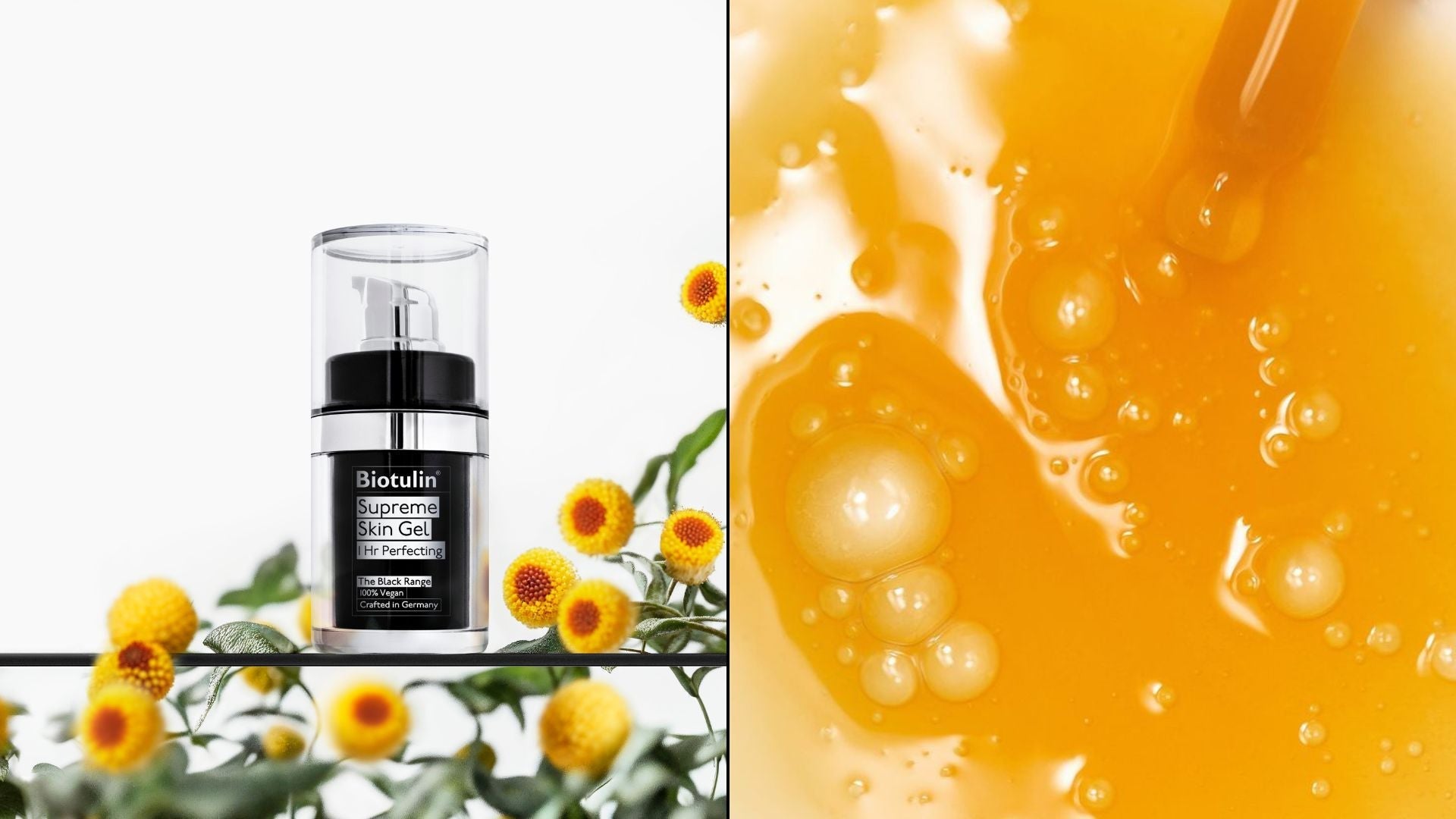In the ever-evolving world of skincare, the quest for the perfect anti-aging solution is ongoing. Two ingredients that have gained significant attention are Spilanthol and Retinol. While Retinol has been a staple in anti-aging routines for decades, Spilanthol is emerging as a powerful and gentler alternative. Let's dive into the differences, benefits, and potential future of these two ingredients in anti-aging skincare.
Understanding skin aging
- Intrinsic Factors: Genetics and hormonal changes contribute to natural aging processes
- Extrinsic Factors: Sun exposure, pollution, and lifestyle choices accelerate skin aging.
- Micro-Contractions: Thousands of daily facial muscle movements lead to wrinkles and fine lines.
What is Retinol?
- Retinol is a form of vitamin A that promotes skin renewal by increasing cell turnover.
- It is known for its ability to reduce the appearance of fine lines, wrinkles, and improve skin texture.
- However, Retinol can cause irritation, dryness, and increased sun sensitivity, making it unsuitable for some skin types.
What is Spilanthol?
- Spilanthol is a natural extract derived from the Acmella oleracea plant, also known as the "toothache plant."
- It has been shown to have powerful anti-aging properties, including the ability to relax facial muscles, reduce the appearance of wrinkles, and improve skin firmness.
- Unlike Retinol, Spilanthol is generally well-tolerated and does not cause irritation or sun sensitivity.
Benefits of Spilanthol in Biotulin products
- Biotulin's Supreme Skin Gel contains Spilanthol as a key ingredient, offering a gentle yet effective anti-aging solution.
- The gel works to smooth out wrinkles and fine lines, providing a natural lifting effect without the need for injections or harsh chemicals.
- User testimonials and clinical studies support the efficacy of Biotulin's Spilanthol-based products, making them a popular choice for those seeking a gentler approach to anti-aging.
Comparing Spilanthol and Retinol
- Efficacy: Both ingredients are effective in reducing the signs of aging, but Spilanthol offers a more immediate lifting effect.
- Safety: Spilanthol is generally safer and gentler on the skin, making it suitable for all skin types, including sensitive skin.
- Long-term Use: Retinol can be beneficial for long-term skin health, but its potential side effects make Spilanthol a more attractive option for daily use.
Incorporating Spilanthol into your skincare routine
- Start by cleansing your skin with the Be:Clean
- Apply a small amount of Biotulin Supreme Skin Gel to your face and neck, focusing on areas with fine lines and wrinkles.
- Follow up with our Soft Cream to deeply moisturize and enhance the benefits of Supreme Skin Gel.
- For best results, use the gel twice daily as part of your morning and evening skincare routine.
Additional tips for youthful skin
- Maintain a balanced diet rich in antioxidants and omega-3 fatty acids.
- Stay hydrated by drinking plenty of water.
- Protect your skin from the sun with a broad-spectrum sunscreen.
- Incorporate regular exercise and stress-reducing activities into your lifestyle.
Conclusion :
While Retinol has been a go-to ingredient for anti-aging, Spilanthol is emerging as a gentler and equally effective alternative. Biotulin's Spilanthol-based products offer a natural and safe way to achieve youthful, radiant skin. Embrace the future of anti-aging skincare with Biotulin and experience the difference for yourself.









